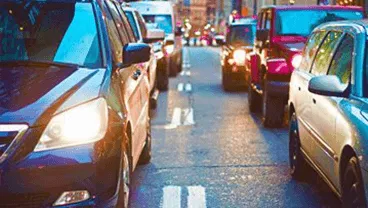27 September 2017
How the London Ban is Helping Uber Regain its Virginity
By Dr Thomas Roulet, Senior Lecturer in International Management
Last Friday, Transport For London announced that it would not renew Uber’s license to operate in the British capital at the end of the month, on the basis the US based taxi-hailing app fail to show the adequate commitment to public safety.

Last Friday, Transport For London announced that it would not renew Uber’s license to operate in the British capital at the end of the month, on the basis the US based taxi-hailing app fail to show the adequate commitment to public safety. TfL ruling took stock of the firm’s failure to screen the background of its drivers, resulting in accumulating complaints by customers.
Uber’s reaction was immediate. They accused their opponents of wanting to “limit consumer choice”. The petition they launched to revert TfL’s decision quickly reached several hundred thousands of supporters – the fastest ever growing petition of this kind on change.org. Through this show of force, and what seems to be the start of a long power struggle in court, Uber demonstrates its ability to unite its customers and get their backing. One would note that the name of the petition is not “Save Uber” but “Save your Uber”, inviting signatories to identify to the firm and claim a broad ownership of the service.
The TfL decision gives an opportunity to Uber to come back from a series of controversies. In fact, the TfL bans seem to prompt the customers to suddenly put aside a series of misconduct and forgive the firm’s past “corporate irresponsibility” without questioning whether the TfL ban is actually justified or not.
In June, 20 Uber employees were fired over sexual harassment allegations, also prompting the resignation of the co-founder Travis Kalanick. In the meantime, since its start, the company has been regularly pointed out across the world for its treatment of drivers and the weak contractual arrangements the firm relies upon. Ironically, the firm is now claiming that the ban will make 40,000 drivers jobless – Uber considers its drivers as its employees, only when it fits its communication, but not when it is about opening the firm’s wallet to secure workers’ rights!
In fact, considering Uber’s history, it isn’t totally absurd to scrutinize the firm and give credit to TfL’s decision. Dara Khosrowshahi, the Uber CEO, in an internal memo to staff on Friday[1], claimed that this decision was a direct consequence of the firm’s bad reputation. Uber’s poor track record when it comes to social responsibility might have indeed triggered greater scrutiny, as an adverse corporate reputation tends to feed itself[2]. In the meantime, research shows that prominent firms feel more entitled and thus are more likely to act irresponsibly[3]. In summary, we have a highly successful company, whose feeling of entitlement conditions irresponsible decisions, making it a “far from perfect” firm (as Uber CEO states it on his Twitter account), which ultimately makes it subject to greater scrutiny by regulators and third parties.
One stakeholder group that does not seem to engage in greater scrutiny is the customers. They have been quick to forget and forgive the company’s track record of irresponsibility. While the collective memory of corporate irresponsibility always tends to fade away with time[4], the Uber ban directly threatens its customers routines, habits and comfort, thus making them more likely to exhibit a selective memory. The Uber ban is a timely opportunity for the firm to wipe its slate clean. But the TfL ban should remind us that our personal reliance on a service does not exonerate us to be critical about the provider – quite the contrary.
Thomas Roulet is a social scientist working on corporate misconduct and a Senior Lecturer at King’s Business School, King’s College London.
[1] http://money.cnn.com/2017/09/23/technology/business/uber-london-crises/index.html
[2] http://www.profemilyblock.com/uploads/3/2/0/2/32024349/mishinablockmannorsmj.pdf
[3] http://amj.aom.org/content/58/5/1287.short
[4] http://amr.aom.org/content/41/4/720.abstract
